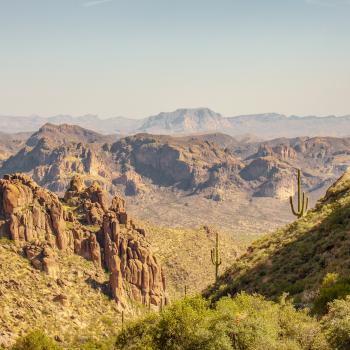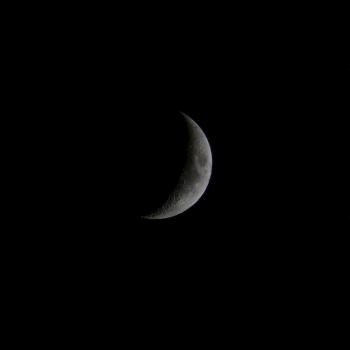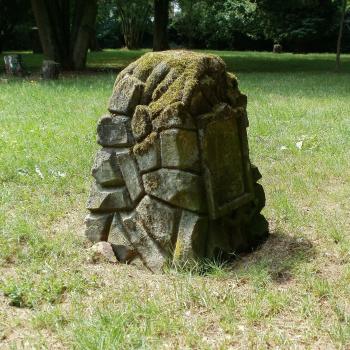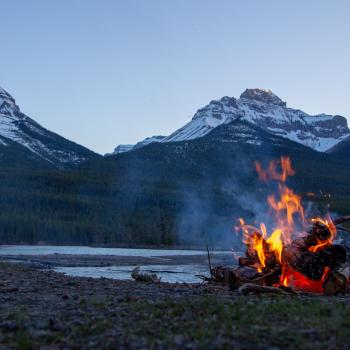Every Wednesday, we’ll go over basic concepts and important practices in the Otherfaith. Join us every Wednesday to learn more about the gods and their religion.
(Though I will do my best to present the Basics series in a logical order, they won’t be perfect. The Otherfaith is only four years old, after all, so we’re a little rough along the edges. If you have suggestions on how or what material should be presented, please speak up!)
This is the masterpost for the Clarene and will include all her symbols, myths, and other basic information. If you have a question, you can always ask in comments or on Facebook, Twitter, or Tumblr.
Overview
from here:
the Clarene
Main Role: Protector of the West/Other People
the Clarene creates the sacred otherworld we interact with and, in doing so, takes responsibility for the land and its People. She does this by cultivating the land – farms and fields, urban spaces, wild spaces, parks, etc. – and by acting as a gatekeeper. Her connections to weaponry (guns, swords, spears) are tied to her protective role.
It would be remiss for me to leave out an important part of this god, which is that she is disabled, and that is an important part of who she is. In the Otherfaith, we hold that spirits can be disabled as humans can be. This may seem strange in a world full of faeries and magic, but magic is not a cure-all even for faeries, nor would some of what we consider disabilities be seen as needing to be ‘cured’. the Clarene at times uses a wheelchair, and her lover Adilene is wheelchair-bound. Disability, to us, is seen as part of life – for gods, faeries, and humans.
Origins
the Clarene first came to me three years ago, but I did not receive her name until 2012. She came to me during a prayer to the Dierne, in which I had requested knowledge of her – for she was the only god of the Four I did not know back then. She was the last of the Four to announce herself, yet is the foremost and highest of the Four Gods. Her official arrival and sharing of her name marked her acknowledgment of my dedication, however. She would not show herself until she was sure of me.
The god herself claims to be from Europe, specifically the areas of France and Germany, and to have become ‘active’ in our world around the 1300’s. (Or, as the Clarene says, “during the Black Death.”) She speaks French and German as well as English (ignoring spirit-crafted languages at the moment). Her fondness for Grimm’s fairy tales she attributes to her heritage.
Still, no matter the impressions we receive about these gods, they are not attested to in folklore. Our ideas and even messages from the gods should not be considered fact or scholarship. We are not reconstructionists. Their origins are more important to us for mythic purposes, not factual ones.
Personality
from here:
the Clarene doesn’t need us, but she wants to be involved with us. That is powerful. While it could be easy to attribute some altruistic motive – turn her into some ‘pure’ figure of ‘goodness’ – that is hardly the situation. She gains, from what we give her. She is definitely a god of return and reciprocity. She gives to us and sustains us that we may give back to her. It could be easy to say that our gifts don’t matter, but that would be a fundamental misunderstanding of our own worth in her eyes. And, no doubt, she loves extravagance. (“Bake me bread. Learn how to brew tea and coffee for me. You will learn the art of beauty.” – so on and so forth.) You do not toss your scraps to this Girl-King. We give sweet herbs and smoke and candies with full knowledge that the Clarene could craft such gifts and more for herself.
from here:
She has always been a God. Whether She wishes that known or not is an entirely different matter. She comes, sometimes, always on soft-feet, as a knight or as a sprite or as an idea. She touches all that is exposed and aching and heals it, gives it skin and flesh and form. …Every mortal and immortal that meets Her knows their debt, but She has yet to claim any payment.
and from here:
She liked humans, she really did. The way their skin felt, the way their bodies decomposed, the way they survived and flourished and contorted their world to their needs – and the way they warmed her bed (she especially liked that). Most saw her and fell to their knees, which was a nice change from the constantly stuck up elves that stuffily asked for baskets of fruit, from the faeries that tried to stand taller than her. She didn’t like humans best, but she did have a fondness for them.
…She paved safe paths for them, set down strict rules for her world, built protectors for them. She enjoyed their company, and she wanted them to survive. Most of the time, at least.
On the most superficial level, the Clarene is a god of comfort, romanticized harvests, and endless support. She is the Ideal Mother. But that is only in the most shallow of interpretations, and even laity in the faith delve deeper into her than that.
the Clarene is a restrained god. She often appears sitting with a cup of tea, offering counsel to the other gods as they go through their own torments. She is calm, but that calmness hides an enormous amount of power. She does, after all, create an entire world with her willpower.
She is, undoubtedly, a great counselor and wise beyond belief, which is why humans, faeries, and gods go to here for aid. But she is not an Ideal Mother, and trying to apply gender-normative ideas of Mother Goddesses to the Clarene will ultimately fall flat. She is more of a midwife than an expecting mother, and her acts of birth often come from her hands crafting creatures. It is difficult to truly apply gender as we know it in the binary to her, or any of the Four Gods. the Clarene wears any manner of genitalia she chooses, and she indulges in her sexuality fully, with any partner she chooses. (She also has non-sexual romantic partners!) She may offer us comfort and support, but we must be careful not to associate those things we her gender or the gender we perceive her as.
She’s still a faery, and no matter how restrained a faery might seem, they’re tricky. They like proving people wrong.
Her bounty of power is connected to the comfort she offers, but we must also understand the less appealing sides of that power. Her bounty is not a clean, sterile harvest but blood and death. She sows and reaps. She splits her own bones apart to create and is not afraid to do so to others. And her syncretic form with the Ophelia – the Ophelene – is a retribution god. She’s called the Gunpowder-Mother. Whatever weaponry the other gods are associated with, she is the one that crafts it.
It is rare to see the retribution side of the Clarene, yes. But as we sit with our subtle god, we should be aware of the power behind her kindness.
Themes
We’ve explored some of her protective aspects, but the Clarene is more than just the King of the Other People. She founds the Westernlands, yes – and she founds it on love. Specifically, her love for two women: an unnamed faery princess and the Ophelia. In some unpublished myths, she also forms the West after many other love affairs, most of them failed.
I’ve called the Dierne the ‘god of love’ before, and he certainly is what one would typically expect from a god of love. And I’ve called the Dierne and Laetha the ‘gods of love’, since their love affair and commitment eventually heals the very hurt heart of the West and its people. But our foremost and highest god is of course the foremost and highest god of love – and the Clarene offers us the chance to love freely and safely. There would be no room for the love of the Laetha and Dierne without her first creating that space.
Which leads us into another of her themes: creation. This is not always birth, as we covered above, though it can be. Our God-King creates through muck and mud and faery dust. She is able to create her own children, and many of her miracles involve blessing her lovers with children where otherwise such would be impossible. She creates in the dark spaces of her workshop, in the deep of her orchards where the trees go wild and tall, and she creates in the light, with her son shining as she makes new trinkets and toys and faeries. For this reason, she is intimately tied to craftsmanship and any work involving the hands.
And she is the tender of the orchards, our harvest god, and so she too is tied to death. She brings forth life and ends life as well, with her sister-lover the Ophelia watching over the very processes of life and death. She offers us meat and does not let us forget where it has come from.
This is important, because she teaches us of consumption, of eating. She is the god that lead the hunts of the dragons, nearly destroyed all hope for their return, and she has not forgotten this. She knows the price of eating and eating and eating without end, without pause, and she will not let us ignore that price. She devours, yes, but she teaches us – through her own mistakes and her own successes – not to devour too much and to always know where that product (be it meat or latest technological toy or media) comes from.
Ethical Consequences
What does having a god such as this in our religion, at the top of our god-family, mean for us, ethically? What does she teach us, and how do we live in right relationship with her outside of devotional activities? (And those matter! Our hands cannot fail to do the work our lips are extolling.)
The ethical teachings the Clarene offers us are, to put it rather simply:
- pragmatic (evolving) ethics
- utilitarianism
- benevolence
- hospitality
But we have to beware approaching those on just their face.
The Other People’s ethics are such that they are intended to be constantly improved upon: pragmatic ethics. We must constantly re-address and re-think our approaches and assumptions and how they effect our relationships with our world and with the people around this. the Clarene does that, and she is sometimes forced to change otherwise stubborn ways due to the changes around her. Change is good. New ideas are good.
Utilitarianism is another huge part of our ethics – limiting pain and maximizing stability and joy. The goal of the Clarene is not to cause endless suffering, nor is it to pursue pleasure relentlessly. We must hold ourselves in balance, and our actions should be based on what will cause the least amount of pain.
This ties into her benevolence, which is more neutral than might be expected. She seeks for fairness, for the security and safety of those she meets. We learn from her that we should act fairly to those around us. the Clarene is interested in the ‘larger picture’, and her benevolence reflects that.
Lastly, her hospitality is tempered. She does not allow every single entity ever into her home. She is able and willing to kick people out, or to bar entry – and this is something the People should keep in mind. We are not to be doormats. We are to be accepting but firm. The gods have no time for those who would step over them or their values, and we should not make time for those who would step over who we are or place us as sub-human just for a warped sense of ‘tolerance’. the Clarene is about hospitality, the proper relationship between guest and host, which does not involve just accepting all persons and opinions as valid.
All these ethical teachings must be understood from the starting point of the consequentialism ethics that permeates the Otherfaith – we emphasize the actions and consequences of those actions rather than the intent or virtue of the person acting. We also have some influences of deontological (duty-bound) ethics, but those come secondary to the focus we place on whether an action is itself in line with our ethics are not. The intent behind the actions is not considered as important or relevant.
Domains
- sovereignty
- consent
- justice
- (acts of) life and death
- lady-lovers/those who love women
- farms
- home/hearth
- right action/proper action
- food/harvest
Symbols
- black
- medical equipment
- lions
- gold
- graveyards
- horns
- Space Needle, Empire State Building, and Sears Tower
- guns/gunpowder
- crowns
- cows
- extinct mega fauna
- griffins
- hounds
- foxes
- tea
- coffee
- Black Death
- Kingship/sovereignty
- compass
- tall trees (sequoias, Douglas fir, Redwoods, etc.)
- skyscrapers
- black mirrors
- spaceships
- feasts
- textiles
- steel
- orchards/farmlands
- lanterns
- swords
Epithets
- Girl-King
- unfeathered one
- Singer
- soft teacher
- stable sight
- lion maker
- sundered limbs
- hand-holder
- mask honer
- orchard keeper
- judgment maker
- pleasure giver
- bare city
- healer of wounds
- mistress of snark
- lady of death
- midwife
- ash and forest
- undertaker
- house of magic
- debt owner
- cruel mother
- tea brewer
- Ophelia’s sister
- star-spearer
- beloved of women
- teller of filth
- screaming retribution
- apple bearer
- skyscraper stilts
- petulant mother
- griffin rider
- one who laughs
- maker of the land
- wind tamer
- earthbound daughter
- Adilene’s lover
- Zero maker
- gunpowder mother
- fire catcher
- Girl-God
- Mother Slaughter
- King
- God-King
Related Spirits
- technically all West spirits
- Dallas
- Black Lion
- Dragongirl
- Desiree
- Merryweather
- Adilene
- Asier
- Othani
- Thiam
- Baryl
- Zs
- Dahlia
- Mary Anne
- Isadora
- Alma
- Ava
- Aletheia
- Moira
- Benja
- Bear
- Rose
- Merrymell
- Ceulyr
- Epiphia
Links
Basics: Four Gods (Redux) [Patheos]
Basics: Clarene (Origins)
Basics: Clarene (Myths)
Basics: Clarene (Family)
Basics: Clarene (Spirits)
Basics: Clarene (Names)
Basics: Clarene (Variations)
Basics: Clarene (Mistakes)
Basics: the Clarene (Offerings)
Basics: the Clarene (Holy Days)
Basics: the Clarene (Places)
Basics: the Clarene (Social Issues)
Basics: the Clarene (Worship)
Basics: the Clarene (Mundane)
Basics: the Clarene (Values)
Basics: the Clarene (Relationships) ►NEW◄
Four Gods: the Clarene [Patheos]
the Clarene + choice [Patheos]
Clarene tag [Tumblr]
*
Wednesdays are Otherfaith Wednesdays on Tumblr, where you are invited to ask any kind of questions about the religion, the gods, or myths that you have. And for those who a little shy, anonymous asks are on.
We are also holding an Otherfaith discussion group every first Sunday of the month. Click here for more details, and send me a message or leave a comment if you would like to join!
New visitor and a little confused where to start? Head over to our About and Otherfaith pages, and then meander over to the beginning of our ‘basics‘ series. Any questions can be directed to my email [email protected].
[Want more of the blog? Follow through RSS and Facebook to receive consistent updates!]
















